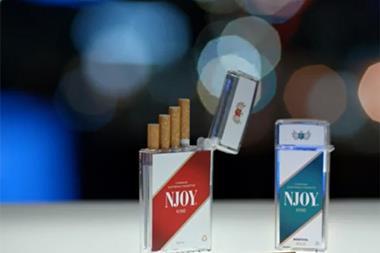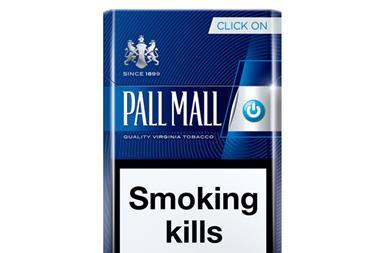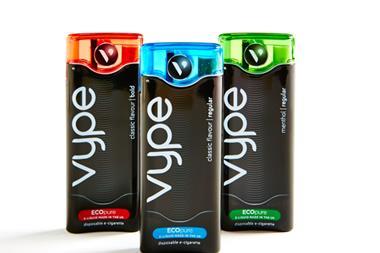
Electronic cigarettes are set to be regulated as a medicine from 2016.
The Medicines and Healthcare Products Regulatory Agency said today it would regulate all nicotine-containing products (NCPs) as medicines in a move to make products safer and more effective to reduce the harms of smoking.
It said the government had come to the decision so that people using electronic cigarettes would have the confidence that they are safe, are of the right quality, and work.
“Reducing the harms of smoking to smokers and those around them is a key government health priority,” said MHRA group manager of vigilance and risk management of medicines Jeremy Mean. “Our research has shown that existing electronic cigarettes and other nicotine-containing products on the market are not good enough to meet this public health priority.”
Mean added that the move was designed to deliver quality products that will support smokers to cut down and quit.
“The decision announced today provides a framework that will enable good quality products to be widely available,” he said. “It’s not about banning products that some people find useful, it’s about making sure that smokers have an effective alternative that they can rely on to meet their needs.”
MRHA said the move to regulate had received widespread support from the public health community during its public consultation between February and June 2010.
It also said it had commissioned research into the products that are currently available in the UK. It found that nicotine levels can be considerably different from the level stated on the label and varied from batch to batch.
“It’s not about banning products that some people find useful, it’s about making sure that smokers have an effective alternative that they can rely on to meet their needs”
Jeremy Mean, MHRA
E-cigarettes are believed to be worth £150m in the UK and are expected to grow sharply in the next few years.
The UK government said it will press for an EU law to create a Europe-wide legal position on NCPs as medicines through the revision of the tobacco Products Directive.
Under the directive as it stands any product with more than 4mg of nicotine would have to be licensed as a medicine. The average nicotine content in e-cigarettes is 18mg.
The Grocer understands that several manufacturers have already applied for a licence from MHRA, but the move towards regulation is likely to see a number of suppliers go by the wayside due to the prohibitive costs associated with obtaining a licence.


















1 Readers' comment